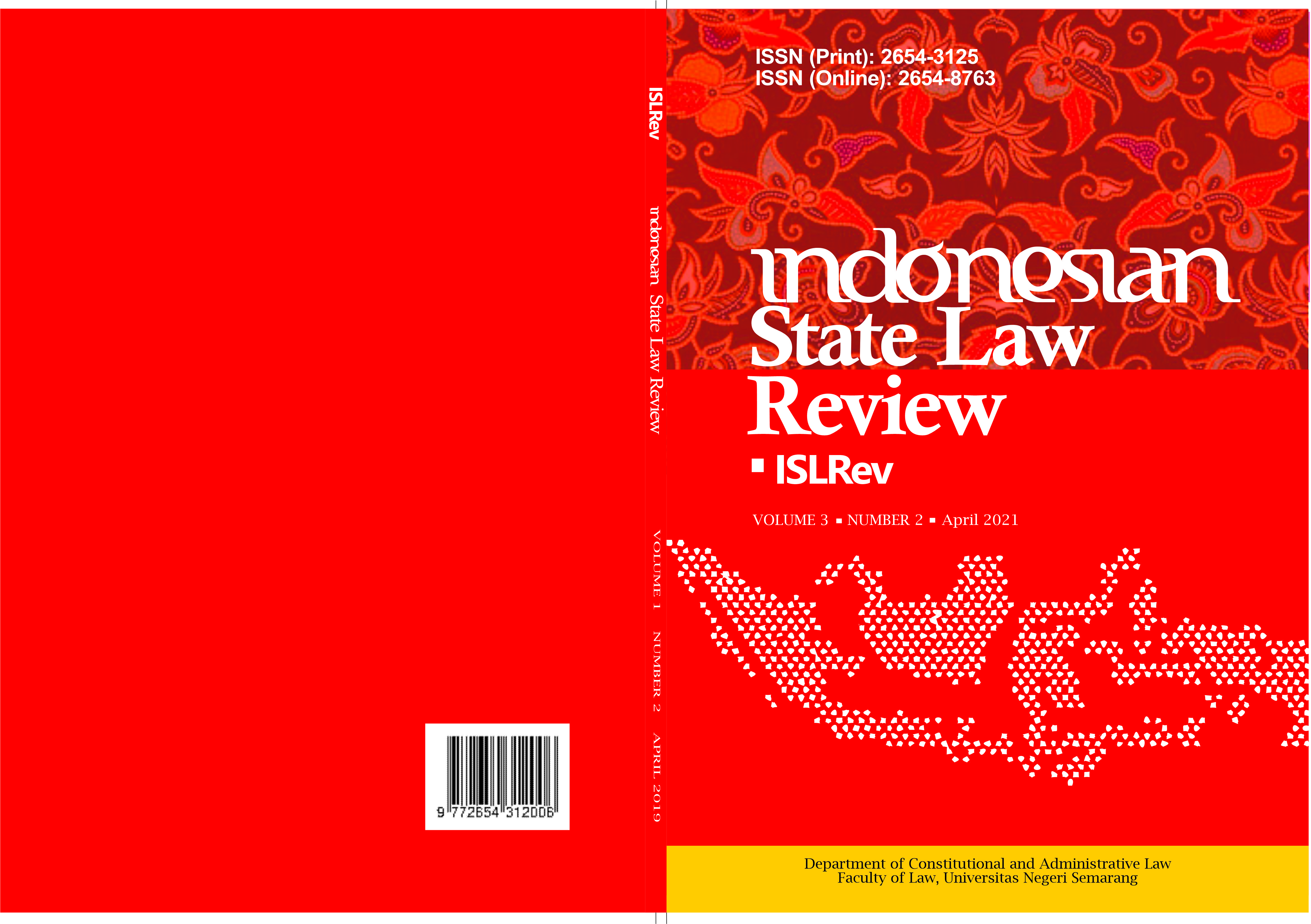PERLINDUNGAN PEKERJA MIGRAN INDONESIA DITINJAU DARI ASAS KESETARAAN DAN KEADILAN GENDER
Main Article Content
Abstract
Protection stipulated in Law Number 18 of 2017 concerning Protection of Indonesian Migrant Workers is all efforts to protect the interests of prospective Indonesian Migrant Workers and / or Indonesian Migrant Workers in order to ensure the fulfillment of their rights in all activities before work, during and after work. The method used is descriptive qualitative with a normative juridical approach. The results show that the protection of Indonesian Migrant Workers in terms of the principles of gender equality and justice can be seen in indicators of gender equality and justice, namely; 1). access, 2). participation, 3). Control and 4). We can find benefits in Law Number 18 of 2017 concerning the Protection of Indonesian Migrant Workers which are scattered in the provisions of this Law, namely: 1). Protection in Pre-Placement, 2). Protection at the time of placement, and 3). Protection after placement, as well as legal, social and economic protection. So it can be concluded that this law is responsive to gender equality and justice. Efforts to protect Indonesian Migrant Workers are viewed from the principles of gender equality and justice. Namely by way of the Regulatory Structuring Efforts carried out by the government to improve Law No. 39 of 2004 concerning the Placement and Protection of Indonesian Workers Abroad with the new Law No. 18 of 2017 concerning the Protection of Indonesian Migrant Workers based on equality indicators. and gender justice, namely; 1). access, 2). participation, 3). control and 4). benefits, which are oriented towards the protection of Indonesian Migrant Workers without discrimination.
Article Details
All works published in the Indonesian State Law Review are licensed & copyrighted under a Creative Commons Attribution 4.0 International (CC BY 4.0).
The editorial board of the Indonesian State Law Review shares common vision with Universitas Negeri Semarang as a Publisher in providing unrestricted access to knowledge and education for all and thereby follows Open Access Policy to showcase its content. The Indonesian State Law Review follows open access copyright and licensing policy on the principle that making research freely available to the public supports a greater global exchange of knowledge.
Universitas Negeri Semarang and the Indonesian State Law Review adhere to Creative Commons Attribution 4.0 International (CC BY 4.0) License. The authors submitting and publishing in the Indonesian State Law Review agree to the copyright policy under Creative Commons Attribution 4.0 International (CC BY 4.0). Under this license, the authors published in the Indonesian State Law Review retain the copyright including publishing rights of their scholarly work and agree to let others remix, tweak, and even build upon their work commercially (for academic, scientific, and common purposes). All other authors using the content of the Indonesian State Law Review are required to cite author(s) and publisher in their work.
References
Dian Cahyaningrum, Peran Bank dalam Pelindungan Ekonomi terhadap Pekerja Migran Indonesia, Jurnal Negara Hukum, Vol. 11, No. 1 Tahun 2020.
Halida Maulidia, Analisis Hambatan Pemenuhan Jaminan Sosial Perempuan Pekerja Migran Indonesia (Ppmi) Di Malaysia Periode 2016-2018, Skripsi, Fakultas Ilmu Sosial Dan Ilmu Politik Universitas Islam Negeri Syarif Hidayatullah, Jakarta, 2019.
Ibrahim Johnny; Teori dan Metode Penelitian Hukum Normatif; Bayumedia Publishing; Malang, Jawa Timur; 2006.
Savitri Wisnuwardani dkk, Memahami Undang-Undang Perlindungan Pekerja Migran Indonesia, Jaringan Buruh Migran, Jakarta Selatan, 2018.
